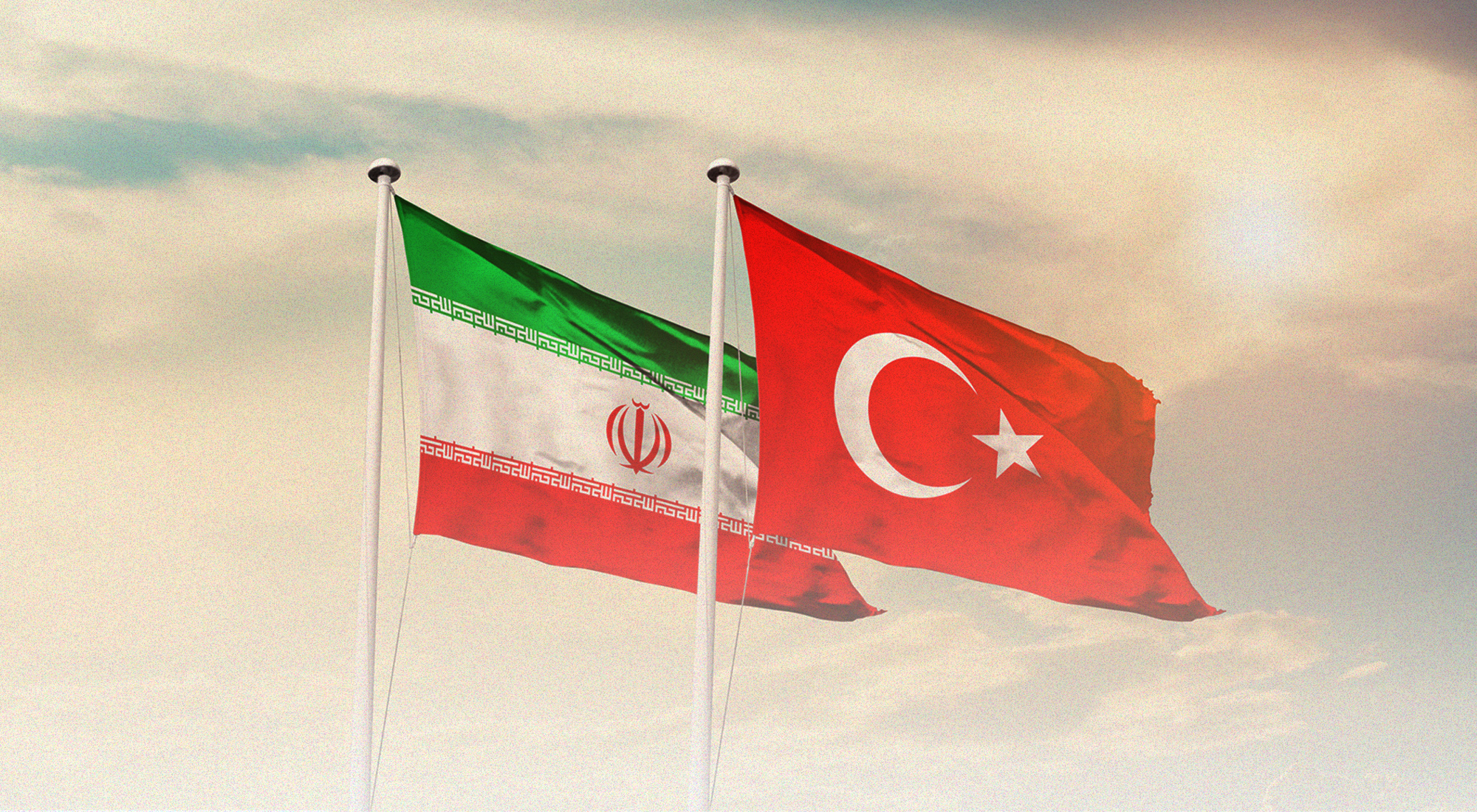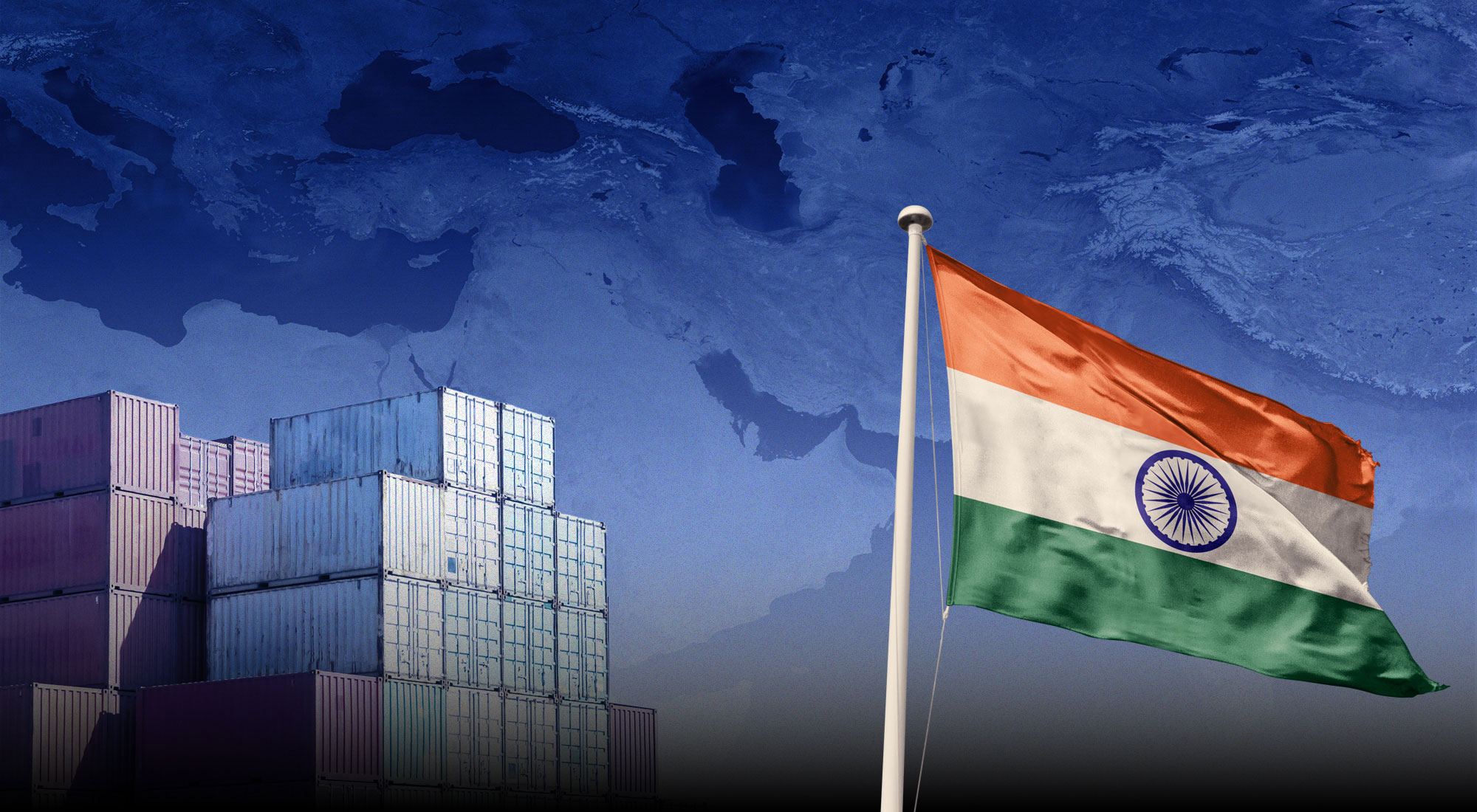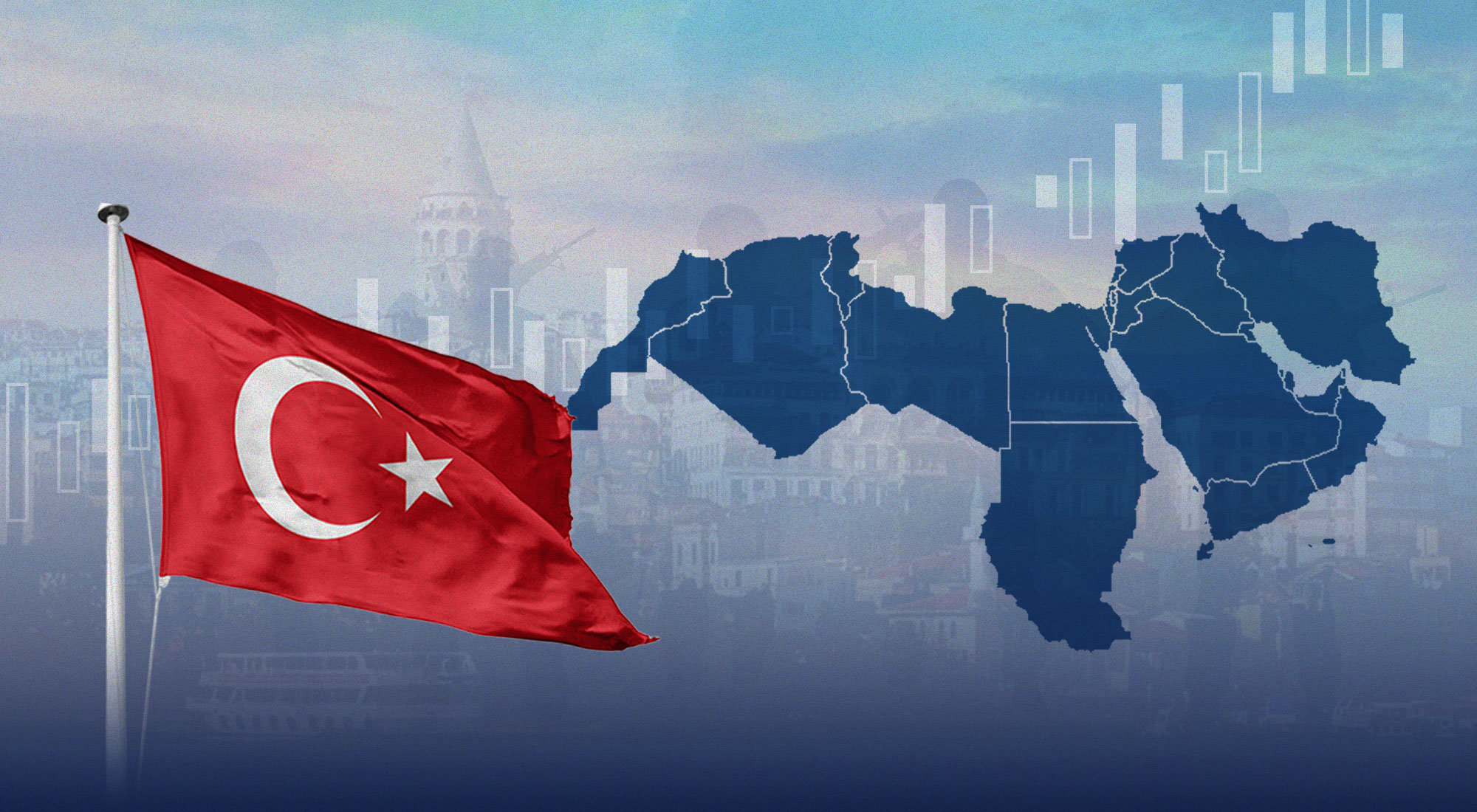Iran-Türkiye ties have traditionally been shaped by intricate geopolitical, economic, and security factors, with both countries playing significant roles in the region. This relationship is expected to change with the election of Masoud Pezeshkian as Iran negotiates internal reforms and foreign obstacles. The way Iran interacts with Türkiye will be greatly impacted by the new leadership’s need to manage foreign policy in addition to internal economic concerns.
Türkiye has handled its ties with Iran pragmatically under President Recep Tayyip Erdoğan, striking a balance between its obligations as a NATO member, a regional partner, and its economic interests. It is expected that the Pezeshkian government would stick to this practical strategy and keep talking with Türkiye about important matters like trade, energy cooperation, and cross-border security. Their quest for influence in Syria, Iraq, and the South Caucasus, however, complicates their relationship even more. As both Iran and Türkiye deal with growing internal and external challenges, such as rising geopolitical tensions and shifting alliances, it will be important to monitor how their relationship is changing.
Trade volume
Türkiye and Iran’s combined trade volume in 2023 was US$5.49 billion, a notable 14% decline from the year before. This fall draws attention to the economic difficulties that both countries are facing, which might be caused by regional upheaval, sanctions against Iran, and shifting global market dynamics. Türkiye is still one of Iran’s primary trading partners despite this decline; the two countries have deep economic links, especially in the areas of consumer products, energy, and construction. [1]
Türkiye imported US$2.18 billion worth of goods from Iran in the same year that it exported US$3.31 billion worth of goods to Iran. Türkiye gained a US$1.13 billion surplus because of this trade imbalance. Türkiye is a major exporter of machinery, autos, and manufactured goods to Iran, while Iran is a major exporter of petrochemicals, natural gas, and agricultural products to Türkiye. Despite its importance, the trade relationship is vulnerable to geopolitical developments that might eventually have an even greater impact on bilateral trade. [2]
Energy relations
Iran and Türkiye have a strategically important energy connection, and the two are now discussing a 25-year renewal of their gas export agreement. Iran continues to be Türkiye’s principal supplier of natural gas, even though U.S. sanctions have significantly decreased petroleum commerce and total trade has decreased. [3] The significance of this energy relationship for the economies of both Iran and Türkiye was highlighted when Iranian Energy Minister Ali Akbar Mehrabian and Turkish Minister of Energy and Natural Resources Alparslan Bayraktar met in July 2023 to discuss ways to improve their collaboration across multiple energy sectors. [4]
According to certain Iranian sources, the real value of commerce between Iran and Türkiye can be higher than US$12.7 billion, defying official estimates that show a decline in overall trade. The reason for this disparity might be unauthorized trade routes created to circumvent U.S. restrictions. These other routes allow the two nations to maintain economic ties in the face of external pressure, demonstrating the strength of their bilateral ties and their dedication to advancing energy cooperation. [5]
The future of Iran natural gas exports to Türkiye
With the present 25-year export deal set to expire in 2026, Iran will have to overcome many obstacles to continue exporting natural gas to Türkiye. The arrangement was first formed in 2001. Significant barriers include things like growing domestic gas consumption, sanctions-related investment limitations, and challenges in developing gas resources. Iranian gas shipments have significantly decreased, according to Turkish statistics, which show drops of 73% in April, 37% in May 2024, and 33% in June. During the first half of this year, Iranian gas shipments to Türkiye decreased by 25% to 2.5 billion cubic meters (bcm), from an estimated 9 bcm per year until 2022. [6]
It’s possible that Iran may only be able to supply one-third of its domestic gas demands by 2040, according to Manouchehr Dastan of the Iranian Gas Engineering Association. Iran has the second-largest gas reserves in the world, but the scarcity is made worse by its inability to utilize its assets, especially South Pars. Türkiye is buying more gas from Azerbaijan therefore, signaling a dramatic change in the region’s gas supply dynamics. [7]
Renewable energy cooperation
Iran offers enormous potential to produce renewable energy, with prospects in the biomass, geothermal, solar, and wind energy sectors. The nation has about 300 sunny days a year, which makes it perfect for producing solar electricity. Together with its geothermal and biomass resources, Iran is expected to have a 100,000 MW wind energy capacity, with places like Golestan, Khorasan, and Sistan-Baluchestan having the most wind. However, Iran’s renewable energy sector is not developing as it would want due to financial and technological limitations. [8]
Türkiye may play a crucial role in helping Iran achieve its goals for renewable energy as it is developing its own renewable energy industry and has the necessary financial and technological capacity. Turkish businesses are becoming more eager to make investments in their neighbors’ economies, including Iran, and they may be able to give Tehran the money and technology it needs to meet its targets for renewable energy. Enhancing collaboration in this area between Türkiye and Iran has the potential to greatly support Iran’s endeavors to increase its capacity for producing renewable energy. [9]
Challenges and Opportunities
The relations between Iran and Türkiye are faced with both challenges and problems with the election of Masoud Pezeshkian as president of Iran. The presidency of Pezeshkian may encourage improved coordination of policies and deeper economic linkages by fostering tighter collaboration on important subjects like energy and regional stability. His strategy might, however, potentially provide difficulties, especially if his measures exacerbate already-existing problems or conflict with Türkiye’s strategic goals. Understanding these factors is crucial to figuring out how the two nations’ relationship could change under Pezeshkian’s direction.
Opportunities
a) Ethnic and Cultural Ties
Because of Pezeshkian’s Turkic (Azerbaijani) ancestry, Iran and Türkiye have a rare chance to strengthen their diplomatic and cultural relations. [10] Pezeshkian’s ethnic and cultural ties to the Turkish people, as evidenced by Turkish President Erdoğan’s statement that he is “actually a Turk” and speaks the language well, may promote a higher degree of understanding between the two countries. This common ancestry may promote easier communication and teamwork, creating new opportunities for commerce, local security, and cross-cultural interactions. Using these ethnic and cultural connections, Pezeshkian’s presidency may be able to improve relations between the two countries and foster more amity and productivity. [11]
b) Regional Stability
The reformist goals of Pezeshkian and his probable emphasis on strengthening relations with Türkiye and Azerbaijan, among other neighbors, might have a big influence on regional stability. His focus on bolstering these ties might lead to Iran, Azerbaijan, and Türkiye working together on energy, commerce, and security projects in a more coherent and cooperative trilateral dynamic. [12] By addressing common issues and fostering regional integration, such collaboration might support a geopolitical climate that is more stable. Pezeshkian’s strategy might transform the trilateral partnership into a more cohesive regional bloc, promoting cooperation on important problems and stabilizing the area. [13]
c) Economic Cooperation
Pezeshkian is expected to take the initiative to pursue economic cooperation with Türkiye, particularly given the importance his administration places on resolving economic issues and promoting the easing of sanctions. His focus on rebuilding business might reverse the drop in trade between Iran and Türkiye, which fell from nearly US$22 billion in 2012 to barely US$7.4 billion in 2023. Pezeshkian may look for fresh trade and investment prospects, which might improve the two nations’ economic connections. [14] Reviving economic relations will strengthen their strategic alliance, promote regional economic stability, and foster cooperation in addition to accelerating growth in both countries.
d) Economic Priorities and Sanctions Relief
Pezeshkian’s focus on easing sanctions and enhancing economic circumstances may present important chances to improve ties between Iran and Türkiye. Greater economic cooperation with regional countries, especially Türkiye, would be made possible by the success of political efforts to ease sanctions with the West. Türkiye has the potential to be a vital link between the economies of Iran and the West, promoting more seamless transactions and closer bilateral relations. But this will probably be a slow and complicated process, requiring Pezeshkian to manage evolving dynamics in the region as well as political demands from both inside and outside. [15] A cautious strategy will be needed to accomplish longer-term economic growth and closer relations with Türkiye.
Challenges
a) Entrenched Power Structures
The potential influence of Supreme Leader Ali Khamenei and the Islamic Revolutionary Guard Corps (IRGC) might hamper Masoud Pezeshkian’s ability to bring about meaningful modifications to Iran’s foreign policy. Although Pezeshkian’s reformist views may encourage closer connections with Türkiye and other neighbors, his ability to independently change Iran’s regional strategy is probably limited by the Supreme Leader’s and the IRGC’s authority over strategic choices. [16] This would curtail Pezeshkian’s possible influence on foreign policy to the extent that any significant changes in policy would have to be consistent with the goals currently set forth by Khamenei and the IRGC.
b) Western Relations and the Nuclear Issue
The way Pezeshkian handles the nuclear problem and relations with the West will have a big impact on ties between Iran and Türkiye. The dynamics of the area may change if he takes a more accommodating posture toward the West to address nuclear concerns and relieve sanctions. Türkiye’s regional policy may become more difficult to implement if Iran decides to realign toward the West, creating a more challenging diplomatic landscape. [17] Türkiye may need to reevaluate its own security and economic connections to strike a balance between Iran’s changing policies and its Western allies. The future of Iran-Türkiye ties will ultimately be shaped by Pezeshkian’s foreign policy, which will have wider ramifications for regional stability and collaboration.
President Pezeshkian’s handling of Iran’s nuclear issue and relations with the West could have a profound effect on Iran-Türkiye relations and the broader regional landscape. Should Pezeshkian adopt a more conciliatory approach toward the West, potentially reducing nuclear tensions and lifting sanctions, it could reshape the diplomatic environment. This shift in Iran’s foreign policy might complicate Türkiye’s regional strategy, which has traditionally navigated between its Western alliances and its ties with regional players, including Iran. An Iran-West rapprochement could impact economic and energy dynamics, potentially affecting Türkiye’s position as an energy hub. Additionally, it could influence regional security arrangements and alliances, challenging Türkiye’s strategic stance. As a result, if Iran under Pezeshkian moves toward a major foreign policy shift, particularly in its relations with the West, Türkiye may need to adjust its regional approach to accommodate these evolving dynamics.
c) Competing Regional Interests
Iran and Türkiye have long-standing conflicts of interest, particularly about regional events like the civil war in Syria. The wider geopolitical rift is shown by Türkiye’s support of rebel troops, while Iran backs the Bashar Al Assad administration. Any attempts to address more significant regional concerns are hampered by this disagreement. [18] It will need deft diplomacy, mutual concessions, and a coordinated effort to address the regional instability that affects both countries’ strategic objectives to navigate these opposing stances. Reaching an agreement on these issues might promote stability in the area, but bridging their conflicting interests would need consistent diplomatic work.
d) Relations with Kurdish groups
In Iran-Türkiye ties, the Kurdish question has long been a complicated and divisive matter that can both be a cause of conflict and a spark for collaboration. Kurdish parties vying for independence are a problem for both Iran and Türkiye: Türkiye faces the PKK, which is designated as a terrorist organization, while Iran deals with PJAK, a branch of PKK. Their differing geopolitical objectives have resulted in uneven collaboration on this subject, despite their common interest in impeding the creation of an independent Kurdish state. [19]
However, Iran-Türkiye ties are strained because of Türkiye’s military action against Kurdish forces in Syria. Türkiye views the PKK-affiliated People’s Protection Units (YPG) and the Syrian Democratic Forces (SDF) as existential threats. On the other hand, Iran’s major objectives in Syria are to uphold the influence of Shia militias and assist the Assad government. Iran opposes Turkish intrusions, even if it does not openly back Kurdish insurgents/terrorists in Syria; these actions threaten the stability and control that Iran hopes to uphold under Assad’s rule.
When Turkish and Iranian soldiers clash with Kurdish militias in northern Iraq, the situation gets even more complicated. Although both countries consider terrorist organizations that target Kurds, such as the PKK and PJAK, as dangers, their approaches are quite different. While Türkiye pursues a more aggressive policy with regular military conflicts, Iran usually takes a more methodical approach. Tensions may arise from these disparate strategies, especially if there is a perceived unfairness in the rewards for their efforts or a lack of coordination. Bilateral ties are further complicated by their competing political and economic interests in Iraq. [20]
Pezeshkian is probably going to play a major role in determining how Iran approaches the Kurdish problem and its larger foreign policy. Should Pezeshkian take a more accommodating posture toward Western countries, this might have a big influence on Iran’s regional policy, especially how it handles the issue. Regional tensions may be lessened and a more conciliatory attitude toward Kurdish groups might result from a change toward a more cooperative engagement with the West. Iran’s relations with its Kurdish-populated neighbors may potentially be impacted by this realignment. In the end, Pezeshkian’s approach to foreign policy will be critical in shaping how Iran handles the Kurdish issue and manages its ties with neighboring countries in the years to come. [21]
e) Internal Iranian politics
Pezeshkian must negotiate Iran’s internal political environment, which includes fierce opposition from conservatives, to achieve changes in foreign policy. Iran’s political landscape is characterized by a precarious power balance, with hardliners frequently opposing measures that may upend enduring ties. [22] Pezeshkian will have a difficult time at home since there may be resistance to his calls for deeper relations with Türkiye. The extent of changes in the relations between Iran and Türkiye may be constrained by his capacity to navigate these domestic challenges while pursuing his foreign policy agenda.
Outlook
The administration of Pezeshkian has the potential for better Iran-Türkiye relations, but there are still major challenges. His capacity to manage intricate regional factors, including shifting alliances and continuous conflicts, while overcoming internal obstacles like political opposition and economic constraints will determine how successful he is. The positive remarks from Turkish President Erdoğan imply a readiness to communicate and work together with the new Iranian government. [23]
Together with cultural exchanges, the first focus of collaboration may be on business alliances such as joint ventures and trade agreements. Careful diplomacy will be needed to resolve increasingly divisive topics, including the Syrian war, Kurdish concerns, and energy competitiveness. To create a stable and mutually beneficial partnership, both nations must embrace a strategic outlook that strikes a balance between short-term interests and long-term goals. [24]
Conclusion
In summary, Pezeshkian’s presidency offers a significant chance to improve ties between Iran and Türkiye, but a number of internal and foreign obstacles may restrict his efficacy. The capacity of Pezeshkian to carry out his reformist program may be hampered by the stronghold power structures in Iran, particularly the IRGC and the Supreme Leader, which have significant influence on foreign policy. Any departure from the established course of events might undermine his attempts to strengthen ties with Türkiye. Pezeshkian’s political capital is further limited by the necessity to manage foreign policy objectives while attending to urgent domestic economic concerns, and he may encounter resistance from hardliners who are unwilling to make any perceived concessions to Türkiye.
The intricacy is further increased by the fact that the gas agreement between Iran and Türkiye expires in 2026. If a contract extension is not achieved, Iran’s problems—such as rising domestic demand, persistent sanctions, and inadequate investment in energy infrastructure—could endanger its standing in Türkiye’s natural gas market. In contrast, Türkiye’s readiness to fund major projects in Iran, including the country’s energy sector, will depend on its ability to comply with the FATF and obtain considerable relief from sanctions against Iran. This would ease Türkiye’s involvement in reconstructing Iran’s energy infrastructure in addition to opening the door for international investments.
To resolve concerns about mutual security and strike a balance between competing political, military, and economic goals, the Kurdish question continues to be a crucial problem that calls for careful diplomacy. The durability of Iran-Türkiye ties is contingent upon their capacity to efficiently coordinate policies and successfully manage common issues, albeit their divergent regional objectives. Treating this problem together might improve bilateral ties and promote stability in the area.
On the plus side, Pezeshkian’s focus on economic diplomacy and the possible easing of sanctions may create opportunities for more commercial interactions with Türkiye. His fluency in the language and Turkic ancestry should facilitate improved communication and mutual understanding between the two countries. Furthermore, Pezeshkian’s backing for regional stability is consistent with Türkiye’s goals, providing a possible basis for better ties. Progress, meanwhile, is probably going to be slow, and Pezeshkian’s skillful navigation of Iran’s complex political terrain will be essential to these projects’ success. Whether these prospects result in significant improvements in Iran-Türkiye relations will be determined over the first 100 days of his administration.
References
[1] “Iran-Turkey Trade Exchanges Exceed $500 Million in January 2024,” Tasnim News Agency, March, 2, 2024, https://www.tasnimnews.com/en/news/2024/03/02/3048427/iran-turkey-trade-exchanges-exceed-500-million-in-january-2024.
[2] “Türkiye-Iran Economic and Commercial Relations,” Republic of Türkiye Ministry of Foreign Affairs, https://www.mfa.gov.tr/economic-and-commercial-relations-with-iran.en.mfa.
[3] Ibid.
[4] “Iran-Turkey trade exceeds $1.3b in Q1 2024,” Tehran Times, May 1, 2024, https://www.tehrantimes.com/news/497923/Iran-Turkey-trade-exceeds-1-3b-in-Q1-2024.
[5] Steven Ganot, “Iran-Turkey Set Ambitious $30 Billion Trade Goal, Says President Raisi,” The Media Line, https://themedialine.org/mideast-daily-news/iran-turkey-set-ambitious-30-billion-trade-goal-says-president-raisi/.
[6] Omid Shokri, “The Future of Iranian Natural Gas Exports to Turkey,” The National Interest, June 24, 2020, https://nationalinterest.org/blog/middle-east-watch/future-iranian-natural-gas-exports-turkey-163387.
[7] “Iran natural gas export to turkey falls again,” Radio Farda, May 23, 2024, https://www.radiofarda.com/a/iran-natural-gas-export-to-turkey-falls-again/33055356.html.
[8] “Iran refocuses on renewable energy projects,” The Economist Intelligence Unit, May 26, 2023, https://www.eiu.com/n/iran-refocuses-on-renewable-energy-projects/.
[9] Francesco Siccardi, “Understanding the Energy Drivers of Turkey’s Foreign Policy,” Carnegie May 26, 2023, https://carnegieendowment.org/research/2024/02/understanding-the-energy-drivers-of-turkeys-foreign-policy?lang=en¢er=Europe.
[10] “Erdogan says new Iranian president is a Turk, hoping for stronger Turkey-Iran ties,” Iran International, July 8, 2024, https://www.iranintl.com/en/202407087625.
[11] “Ankara hopes new chapter in ties with Iran under Pezeshkian,” Daily Sabah, July 7, 2024, https://www.dailysabah.com/politics/diplomacy/ankara-hopes-new-chapter-in-ties-with-iran-under-pezeshkian.
[12] Fuad Muxtar-Agbabal, “Unexpected Victory: Pezeshkian’s Win Signals Hope For Iran’s Future,” Eurasia Review, July 15, 2024, https://www.eurasiareview.com/15072024-unexpected-victory-pezeshkians-win-signals-hope-for-irans-future-oped/.
[13] Faiq Mahmudov, “Iran and Azerbaijan: New opportunities or old disagreements?,” News.Az, August 28, 2024, https://news.az/news/-iran-and-azerbaijan-new-opportunities-or-old-disagreements.
[14] “Erdogan says new Iranian president is a Turk, hoping for stronger Turkey-Iran ties,” Carnegie, September 26, 2024, https://www.iranintl.com/en/202407087625.
[15] Ellie Geranmayeh, “Managed reform: What Iran’s new president means for European diplomacy,” The European Council on Foreign Relations (ECFR), July 10, 2024, https://ecfr.eu/article/managed-reform-what-irans-new-president-means-for-european-diplomacy/.
[16] Patrick Clawson, “Talking Nicely with Pezeshkian While Postponing Major Steps,” The Washington Institute, https://www.washingtoninstitute.org/policy-analysis/talking-nicely-pezeshkian-while-postponing-major-steps.
[17] Elizabeth Palmer, Seyed Bathaei, “What Iran’s moderate new President Masoud Pezeshkian might try to change — and what he definitely won’t,” CBS News, July 9, 2024, https://www.cbsnews.com/news/iran-new-president-masoud-pezeshkian-what-could-he-change/.
[18] Ibid.
[19] Bayram Sinkaya, “The Kurdish question in Iran and its effects on Iran-Turkey relations,” British Journal of Middle Eastern Studies 45, no. 5 (2018).
[20] Hamidreza Azizi and Salim Çevik, Turkish and Iranian Involvement in Iraq and Syria: competing Strategies, rising threat perceptions, and potentials for conflict, German Institute for International and Security Affairs, 2022, https://www.swp-berlin.org/10.18449/2022C58/.
[21] Ibid.
[22] Patrick Clawson, “Talking Nicely with Pezeshkian While Postponing Major Steps,” The Washington Institute, https://www.washingtoninstitute.org/policy-analysis/talking-nicely-pezeshkian-while-postponing-major-steps.
[23] “Ankara hopes new chapter in ties with Iran under Pezeshkian,” Daily Sabah, https://www.dailysabah.com/politics/diplomacy/ankara-hopes-new-chapter-in-ties-with-iran-under-pezeshkian.
[24] “Iran, Turkey officials hold friendship meeting in Istanbul,” Tehran Times, August 25, 2024, https://www.tehrantimes.com/news/502896/Iran-Turkey-officials-hold-friendship-meeting-in-Istanbul.








